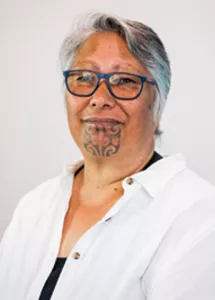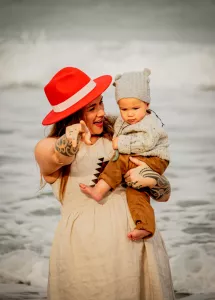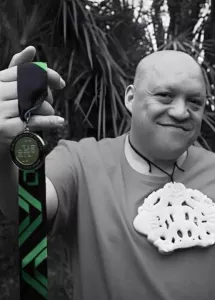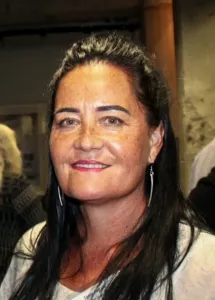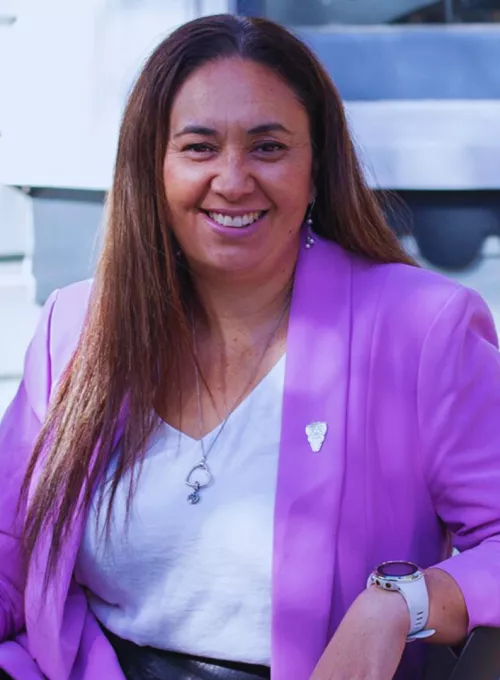
Eboni Waitere is an executive leader, literary champion, and unapologetic advocate for Māori storytelling.
As a Director of HUIA Publishers, Eboni’s career has led to her amplifying Māori voices in print—ensuring whānau, hapū, and iwi see themselves in books, classrooms, and libraries throughout Aotearoa and the world.
A proud uri of Ngāti Kahungunu and Rangitāne, Eboni was raised in Whakaoriori, Masterton, immersed in the rhythms of Māori oral tradition. Her early years were marked by the power of stories passed down and the absence of Māori perspectives in mainstream literature.
“Stories of taniwha and the rivers were a normal part of our education. It’s hard to measure just how much confidence that instils in a person, when they know their culture and identity.”
As a kura kaupapa graduate and former US exchange student, she experienced first-hand the impact of cultural invisibility and knew something had to change. That drive brought her to HUIA, where she started as Chief Operating Officer before becoming Director in 2014.
HUIA was founded in 1991 to champion Māori perspectives. Eboni saw a poster for the Huia Short Story Awards as a teen and recalls the awe it inspired. Today, that same competition—now the Pikihuia Awards —has uncovered hundreds of new Māori writers. HUIA has published more than 500 Māori authors, 50 Māori illustrators, and over 1,000 Māori language books.
For Eboni, publishing is more than industry—it’s identity. She believes seeing ourselves in stories is vital for wellbeing.
"When tamariki and rangatahi read books in te reo Māori and see themselves reflected in the characters and narratives, it strengthens their wairua,” she says.
“Stories shape confident, culturally grounded generations. They heal. They connect.”
But storytelling comes with responsibility. Eboni is also a fierce guardian of Māori intellectual property and publishing rights. Books like Matariki: The Star of the Year by Dr Rangi Matamua and Living by the Moon Wiremu Tawhai are considered taonga. When they’re used without permission, it causes cultural and relational harm. Eboni advocates for stronger protections to ensure Māori knowledge is honoured, not exploited.
Outside of publishing, Eboni serves as co-chair of Te Rūnanga o Ngāti Kahungunu ki Te Whanganui-a-Tara and is a dedicated māmā to Amokura and Whaiao. Her work is grounded in whakapapa and future-thinking—making space for mokopuna Māori to thrive in a world where their stories are seen, heard, and valued.
“The work done at Huia aligned with my values. I knew from my own experiences that there was, and still is, a need for great original works in Māori. Now my children, Amokura and Whaiao, get to read well-written books that reflect their lived experiences. Not only can they read it in Māori, but the characters look like people they know. My hope is that they never doubt their value in society, which is the same privilege other New Zealanders experience.”
“Our stories are a source of power. When they’re protected, celebrated, and shared by us, they transform lives.”
Links:
Brisbane Writers Festival – Eboni Waitere Profile
Waatea News: Huia taps strength of Māori wordsmiths (Audio)
Podcast: Eboni Waitere and Pania Tahau Hodges – S01E08 (Spotify, Audio)
27 May 2025
